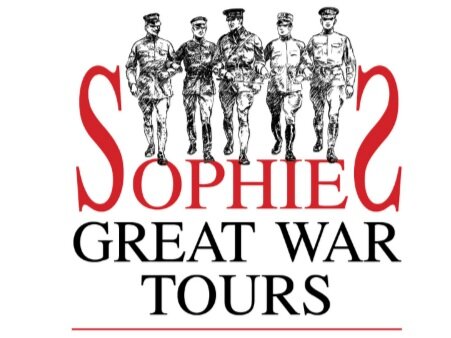Today’s advent calendar concerns the actions of Lieutenant Colonel Airey Middleton Sheffield Neave.
Our Parliament today has very few former soldiers, or indeed reservists that can be called upon, but this was certainly not always the case. Indeed post the Second World War, almost every British politician had served their country in some capacity between 1939 - 1945. In the Heath government, every cabinet member had served, except one…I shall leave you to work out which hadn’t.
Airey Neave was to become a household name, not only for his political views, but for his Second World War prowess.
Neave was to study at Eton and then Merton College Oxford. At Eton, Neave served in the school cadet corps as a cadet Lance Corporal, and received a territorial commission as a Second Lieutenant in the Oxfordshire and Buckinghamshire Light Infantry on 11th December 1935.
Neave transferred his territorial commission to the Royal Engineers on 2nd May 1938 and following the outbreak of war he was mobilised. Sent to France in February 1940 with 1st Searchlight Regiment, Royal Artillery, he was wounded and captured by the Germans at Calais on 23rd May 1940. He was imprisoned at Oflag IX-A/H near Spangenberg and in February 1941 moved to Stalag XX-A near Thorn in German-occupied western Poland. During this time, his commission was transferred to the Royal Artillery on 1st August 1940.
In April 1941 he escaped from Thorn with Norman Forbes. They were captured near Ilow while trying to enter Soviet-controlled Poland and were briefly in the hands of the Gestapo. In May, they were both sent to Oflag IV-C, which we now refer to as Colditz.
Neave made his first attempt to escape from Colditz on 28th August 1941 disguised as a German NCO. Alas he was caught in the act as the Polish uniform he used and painted shone bright green under the searchlights!
Together with Dutch officer Anthony Luteyn, he made a second attempt on 5th January 1942, again in disguise. This time with better uniforms and a planned escape route (they made a quick exit from a theatrical production using the trap door beneath the stage) the two men made it out. They travelled by train and on foot to Leipzig and Ulm and finally reached the border to Switzerland near Singen. Via France, Spain and Gibraltar, Neave returned to England in April 1942. Neave became the first British officer to escape Colditz.
Shortly after his return to England he was awarded the Military Cross and then promoted to Captain.
After his escape, Neave was recruited as an intelligence officer for MI9, supporting underground escape organisations in occupied Europe, with equipment, agents and money; assisting downed Allied airmen and other Allied military personnel evade and escape capture by the Germans. In Western Europe, about 5,000 British and American military personnel were rescued by the escape organisations and repatriated to the United Kingdom, mostly through neutral Spain, before D-Day. After June 1944, Neave journeyed to France and Belgium and, with help from the Comet Line and the Resistance, rescued more than 300 allied airmen who had taken refuge in forest camps after being shot down.
He also served with the International Military Tribunal at the Nuremberg trials, investigating Krupp. Given he spoke fluent German, he was asked to read the indictments to the Nazi leaders on trial.
A temporary lieutenant-colonel by 1947, he was appointed an OBE (Military Division) in that year's Birthday Honours. He was awarded the Bronze Star by the US government on 20 July 1948,and was promoted to lieutenant-colonel on 1 April 1950. He entered the reserves on 21 September 1951.
Neave was elected to Parliament in 1953, representing the Conservatives in Abingdon.
Two decades later, he was appointed Shadow Secretary of State for Northern Ireland .
On 30 March 1979, Airey Neave was mortally wounded when a car bomb fitted with a tilt-switch exploded under his vehicle as he drove out of the Palace of Westminster car park. He lost both legs in the explosion and died of his wounds at Westminster Hospital an hour after being rescued from the wrecked car. He was 63.
The Irish National Liberation Army (INLA) afterwards claimed responsibility for the assassination.
Following his death, Conservative leader Margaret Thatcher said of Neave:
He was one of freedom's warriors. No one knew of the great man he was, except those nearest to him. He was staunch, brave, true, strong; but he was very gentle and kind and loyal. It's a rare combination of qualities. There's no one else who can quite fill them. I, and so many other people, owe so much to him and now we must carry on for the things he fought for and not let the people who got him triumph.
Labour Prime Minister James Callaghan said: "No effort will be spared to bring the murderers to justice and to rid the United Kingdom of the scourge of terrorism."
Airey Neave’s name is most notably known for his cruel assassination. I would like this post to remember the important work he did for his country in the Second World War and the determination he brought to the fight against fascism. Upon escape, he put his experience to use, helping hundreds of others.
